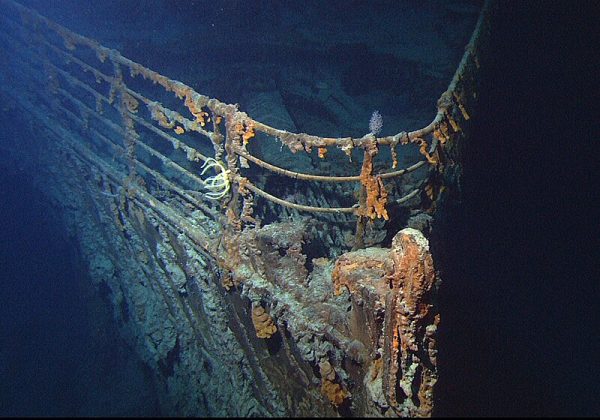With most research funding being put into space exploration, most people disregard marine exploration as something we should focus on as well. Over 70% of the Earth’s surface being oceans, we still have much to learn about our world before venturing off into space.
Oceans provide scientists with mass amounts of data that can be used to further the development of humans with how they host life in the ocean which can help us gain a deeper understanding of the biology and ecology by studying each ecosystem. The ocean also plays a crucial role in regulating the global climate and its impact on weather patterns which is essential to how we predict and prepare for the weather.
Over 80% of the ocean has yet to be explored, which should make marine exploration a priority over space exploration. If we can understand our planet better, we can find new ways to improve life and answer questions that have remained unanswered for years about the ocean such as how marine life can be living flourishing amid the ocean plastic.
Given current events, exploring our oceans seems more relevant than exploring distant planets, as the health of marine environments directly impacts human life on Earth.
The current deepest level of the ocean is called the “Challenger Deep” and is located beneath the western Pacific Ocean at the southern end of the Mariana Trench, only three people have made it to the bottom which is approximately 10,935 meters (or 35,876 feet) deep.
Hannah Rosas, a senior at Eleanor Roosevelt High School, gives her thoughts on the topic, “I feel like marine exploration should be prioritized over space exploration. Mostly because marine exploration is more accessible and easier.”
With marine exploration being here on Earth instead of in space, million miles away from Earth, it makes it more accessible for researchers to explore as they can spend fewer resources on making a vessel that can allow them to explore more thoroughly. In comparison to building a vessel to rocket into space, researchers can better spend their resources on funding for organizations like the NOAA, National Oceanic and Atmospheric Administration, which receives significantly less funding than NASA.

Another senior at Eleanor Roosevelt High School, Rachel Cong, mentions how “Space exploration does not provide as many benefits as marine exploration could. It costs more funding to send individuals to space than to send them to study the ocean…[it] can allow for knowledge of Earth’s natural disasters and provide society with valuable knowledge.”
Having more exploration in the ocean can help researchers gain the data they need to better predict earthquakes which happen more often in the ocean due to the ocean floor being a key area for studying geological processes like plate tectonics and volcanic activity that cause larger-scale earthquakes.
Along with earthquakes, many marine organisms may possess unique biochemical properties that can help society advance in their medicine such as antibiotics or even treatment for diseases. There is still much we have to learn about the ocean to be able to gain a greater understanding of how the ocean currents and marine navigation routes enhance the shipping efficiency and safety on the ocean which is crucial for global trade and transportation.
The ocean is important in everyday life for our society with how we depend on it for food, transportation, trading, and much more. If we were to gain a better understanding of the deep trenches of the oceans that surround the lands we live on, we could increase our national security with our increased knowledge of the marine environment.
If researchers and people in the world focused more on marine exploration, there could be many breakthroughs that could uncover methods that could be critical in preserving the marine life which are at stake of becoming extinct due to overfishing, hunting, and pollution. There are still many different species of marine creatures that can aid our society that we may be unaware of due to them living in parts of the ocean we have yet to explore.
Becca Zhou, another senior at Eleanor Roosevelt High School, comments “Studying oceans can also bring more history to light, showcasing animals and life that may have existed without our knowledge. We could find materials that could benefit our medical society and make new scientific discoveries.”
With most exploration focused on the idea of space, most funding for the project goes to NASA, which explores space, and leaves barely any funding for organizations that have set out to explore the ocean. Ocean organizations have slowed down their development in exploring due to a lack of funding, technological challenges, public interest and support, and much more. They seem to face more issues with their goal in comparison to NASA which is widely funded.

Ocean knowledge is important for society to progress as we discover new organisms, ecosystems, areas, etc. which can help enhance our lives with new developments from marine life studies. Researchers and scientists should also focus on space exploration but marine exploration should take priority with the endless possibilities that could be achieved if they decide to put more funding towards organizations that want to explore the ocean like the NOAA (National Oceanic and Atmospheric Administration).
The decision to prioritize marine exploration could only be encouraged by the people and approved by Congress, which should be more widely known especially with how the Titan submersible went missing while on a tour of the Titanic wreckage site in the North Atlantic Ocean in June 2023. They were reportedly destroyed in a “catastrophic implosion” with the debris of the submersible found on the ocean floor near the Titanic, all five people aboard the Titan submersible were killed.
The ocean has an unlimited amount of possibilities that society can uncover within time given the resources and proper funding for marine exploration and strengthen our way of life. The question of whether this should be prioritized over space exploration is a thought that may vary with each individual based on what they have experienced or have heard about these topics.







